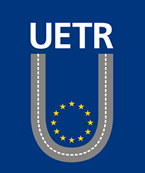11 Oct EEA Report
27 April 2010 – The EEA report: “Towards a resource-efficient transport system — TERM 2009” has been published today (please find here the text of the report).
Focusing on the polluting emissions, the EEA Report states that with the 2009/443/EC directive, the European Commission decided to introduce more stringent criteria for the emissions of new road vehicles. According to the Directive, in 2014 the level of emissions of light commercial vehicles will be of 175 g CO2/km and of 135 g CO2/km in 2020 and Commission is also studying similar restrictions to be imposed on heavy commercial vehicles. Emissions from transport sector are increased by 28% from 1990 to 2007, although in the same period have decreased some pollutants such as acidifying substances and ozone-precursors, with the introduction of technological innovations as catalysts. Then, according to all the various screenings, road transport of goods and people remain the most widely used means of transport, in particular emissions trading movements represent 40% of total emissions. Moreover, the number of road freight, from 1995 to 2007, rose from 50% to 70% in the EU-12. Turning then to the reduction of pollutant emissions, the objective of the Intergovernmental Panel on Climate Change is a 80% reduction in CO2 emissions, and it has been affirmed that such a reduction in transport is a reasonable goal. Strategies for achieving this are many and can be divided into three categories:
- Avoid the movement, thus reducing the need for transport and the consequent demand.
- Co-modality and tend to zero emissions, using public transport, non-motorized vehicles and introduction of traffic restrictions and taxes.
- Improving the efficiency of road vehicles, to reduce emissions, also developing new technologies: hybrid vehicles, electric and alternative energy sources such as biofuels.
It is also important to remember that all possible measures to reduce emissions from road vehicles must be economically efficient. They should also not produce excessive emissions during their production, because of course otherwise that would undermine all efforts to pollute less.





No Comments